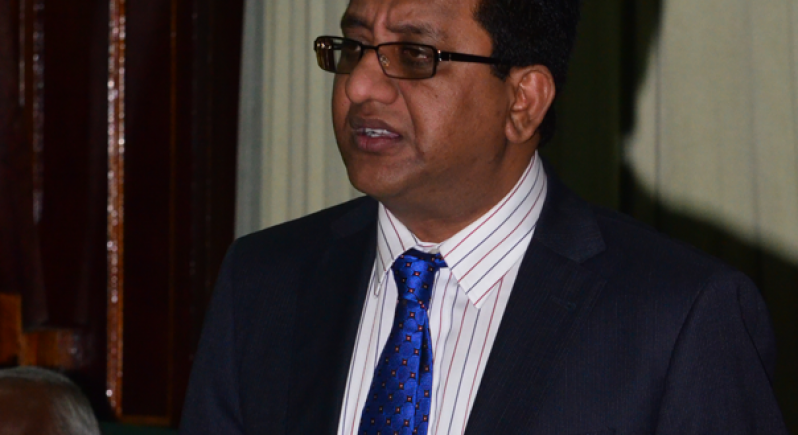CJ dismisses challenge to Broadcasting Act and fees
RAMBARRAN Broadcasting Systems Limited and Jacob Rambarran, the company’s Director on June 12, 2014 filed an action that sought constitutional redress and challenged the Broadcasting Act – a regulatory framework – provisions as it relates to fees.
The Attorney-General (AG) and Minister of Legal Affairs, Anil Nandlall, in an affidavit responding to Rambarran’s contention, explained that the fees charged by the Authority are “lawful, reasonable and properly computed and promulgated”.
On October 24 Chief Justice (CJ) (ag.) Ian Chang, after considering both positions, dismissed the challenge.
The court expressed the view that a licensing system is a common means of regulating broadcasting and legislation providing for such regulation cannot be assailed on the ground that it is not reasonably necessary for regulatory purposes.
The Broadcasting Act No.17 of 2011 is in force and this Act established the Guyana Broadcasting Authority and also governs the granting of licences to operate in the broadcasting sector. On July 28, 2011, the National Assembly passed the Broadcasting Bill. That Bill was assented to by the President on the September 27, 2011, and came into force on the August 28, 2012.
GROUNDS FOR CHALLENGE
Rambarran Broadcasting Systems Limited was granted a licence for a wireless Telegraph service for the period January 1, 2012 to December 31, 2012 for the establishment and operating of a television broadcasting station under the Postal and Telegraph Act, chapter 47:01, and the regulations made thereunder.
Rambarran, in his complaint, contended that Parliament enacted the Broadcasting Act 2011, in contravention of the Constitution and that the Act provided for a politically controlled Board, which was representative of the political party in control of the Executive, but which was not representative of the people who exercise sovereignty by or through the National Assembly.
He also charged that the Act was designed to deprive the National Assembly of control over the Executive. They further contended that the use of the spectrum for licensed broadcasting can be constitutionally valid only if the system of granting licences is exercised by an independent and autonomous body created or approved by the National Assembly and that the Act was contrived to secure political party control over the spectrum and its use with potentiality for political partisanship and arbitrary governance.
According to him, following the General Elections in November 2011, the Executive did not have the confidence of the National Assembly because the Executive has no control over the majority of the elected representatives in the National Assembly.
Counsel for Rambarran stated too that the Broadcasting Act 2011 is in contravention of his freedom of expression under Article 146 (1) of the Constitution.
CJ’S RULING
These contentions were all addressed in the CJ’s ruling.
Chang said: “One must distinguish between National Assembly election which attracts proportional representation since the number of elected representatives being 65 is divisible into integers and Presidential election which does not attract proportional representation since a unitary figure of one is incapable of such a division.”
He also stated that based on Article 99 (1) and Article 99 (2) it can be seen that all Executive authority is constitutionally vested in the President solely.
Chang said too that the National Assembly is not a supreme organ of democratic power even though it is a component part of Parliament.
He explained that the President in whom all executive authority resides is a supreme organ of democratic power and is also a component party of Parliament. Hence the National Assembly, not being a supreme organ of democratic power, cannot exercise democratic power superior to the elected President or Parliament.
The Chief Justice concluded that in respect to democratic power, the submissions of the applicants have erroneously elevated the National Assembly above both Parliament and the President when the National Assembly has not been identified by the Constitution itself as a supreme organ.
Additionally, since the Government has not been defeated by a vote of the majority of all the elected members of the Nationally Assembly and the President and his cabinet continue to executively govern, it cannot be assumed that, because the Government holds less than 50% of the seats of the elected members of the Assembly, it does not enjoy the confidence of the National Assembly. The presumption of confidence can be rebutted only by a vote of the majority of all the members of the National Assembly.
The court held the view that the Motion is legally misconceived and, accordingly, must be dismissed. Also, the court ordered costs to the Attorney General in the sum of $100,000.




.png)









